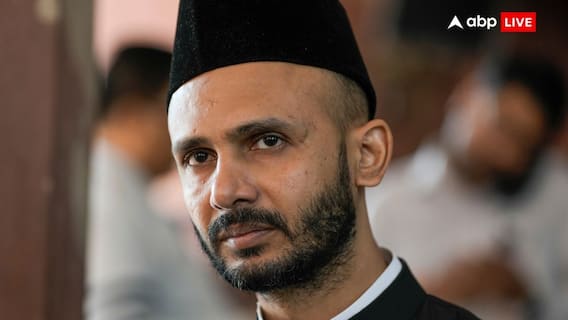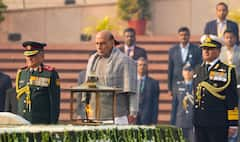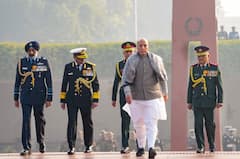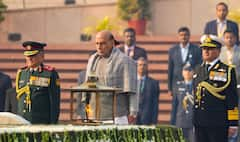Mumbai Court Denies Bail To Former Minister Nawab Malik In Money Laundering Case
The Enforcement Directorate (ED) had arrested the Nationalist Congress Party (NCP) leader in February this year. He is in judicial custody.

A special court in Mumbai on Wednesday denied bail to former Maharashtra minister Nawab Malik in connection with a money laundering case linked to activities of gangster Dawood Ibrahim.
The Enforcement Directorate (ED) had arrested the Nationalist Congress Party (NCP) leader in February this year. He is in judicial custody and currently undergoing treatment at a private hospital in Mumbai.
Special judge R N Rokade on November 14 reserved his order on Malik's bail plea after hearing lengthy arguments put forth by both sides. The court earlier said it would pronounce its order on November 24. However, on that day the court adjourned the matter till November 30, saying the order was not ready.
Malik moved a regular bail plea before the special court in July. The NCP leader sought bail pleading there was no predicate offence against him to prosecute him for money laundering.
The probe agency, however, opposed the bail stating the case registered by the National Investigation Agency (NIA) against Dawood Ibrahim and his henchmen is considered as a predicate offence.
The ED's case against Malik is based on an FIR filed by the NIA against Dawood Ibrahim, a designated global terrorist and key accused in the 1993 Mumbai bomb blasts case, and his aides under the Unlawful Activities (Prevention) Act (UAPA).
The ED has alleged that a prime property in Kurla, worth Rs 300 crore, was usurped by Malik through Solidus Investments Pvt. Ltd, a company purportedly owned by his family members. The property belonged to one Munira Plumber.
The ED has claimed that this was done in connivance with Dawood's sister Haseena Parkar, her bodyguard Salim Patel and 1993 bomb blasts convict Sardar Shah Wali Khan.
The agency has also provisionally attached five properties belonging to the Malik family in Mumbai and other parts of the state.
However, Malik emphasised that the present case was based on a transaction that supposedly took place in 1999, when PMLA was not in existence and and it could not be applied retrospectively 22 years later.
Trending News
Top Headlines






































